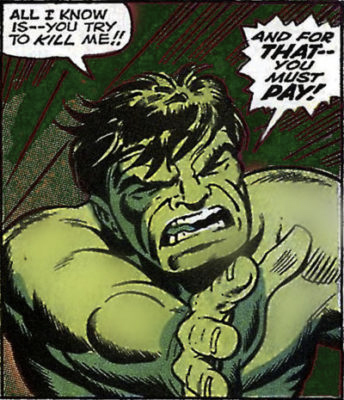(continued from Uhuru Takes the Stage — Out of the Blue)
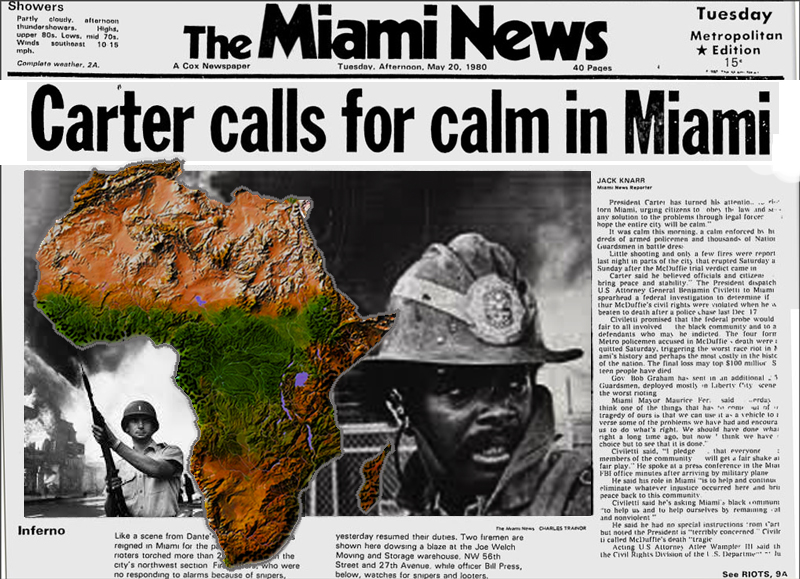 Most organizations don’t bother much in the way of theory. Just do what everybody else is doing, and keep doing more of it. (That’s why the left is doing so well!) But there is a much higher standard for revolutionary organizations. And there is a much higher price for failure. Revolution requires taking what is, then visualizing what must be, and navigating past the bleached bones of one’s forbears along an all too treacherous path. More must be said about Uhuru’s revolutionary theory.
Most organizations don’t bother much in the way of theory. Just do what everybody else is doing, and keep doing more of it. (That’s why the left is doing so well!) But there is a much higher standard for revolutionary organizations. And there is a much higher price for failure. Revolution requires taking what is, then visualizing what must be, and navigating past the bleached bones of one’s forbears along an all too treacherous path. More must be said about Uhuru’s revolutionary theory.
For starters, they call it the African People’s SOCIALIST Party. But their socialism is not the socialism of Bernie Sanders, that rehash of a welfare state that is coming apart at the seams. The APSP’s socialism requires that the poor and working people, particularly the African working class, directly seize power. More specifically, it calls for the African Nation seizing that power through a national liberation struggle. But obvious questions arise, given that they are located primarily in the United States.
I mean, I look back at the recent campaign of Jesse Nevel for Mayor and Akilé Cainion (now Akilé Anai) for City Council District 6, and I see practically a leftist’s dream. With the forces at their disposal, they did everything right, and they did it in the middle of Florida in the middle of the USA. The robot in Lost in Space cries, “This does not compute, Will Robinson!”
I “grew up” Marxist, at least since 1967, back when it still meant something. Class, I was taught, is fundamental. In every struggle, one must always take account of the class question, examine the class content of every institution, every idea, every issue. The Marxism of the U.S. Left of today is a horrible parody of Marxism as it was practiced by Marx and his progeny who actually made revolutions. Mangled by the left, its ghostly dead shadow still looms over all.
“We are not Marxists,” says Chairman Omali Yeshitela. Yet when reading his work, it sure sounds Marxist to me — the real thing. Still, it is something different.
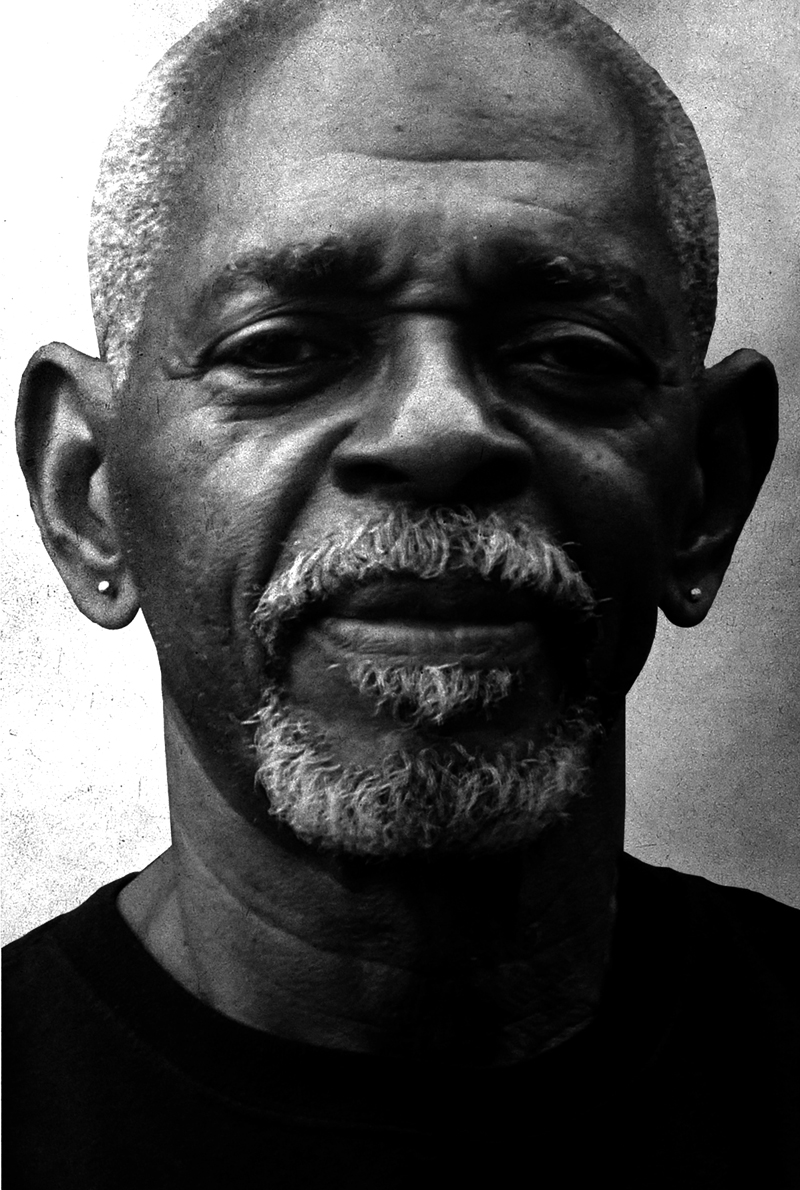 Yeshitela counterposes that there is one vast “colonizing nation” called Europe, made up of what we traditionally call those European countries on the East side of the Atlantic Ocean, PLUS North America. Then there is Europe’s gravedigger, Africa, found anywhere in the world where there are Africans. But in rough terms, it would be “traditional” Africa PLUS those of African descent in the United States and Central and South America. Africa lives where those of African descent fight to so define themselves.
Yeshitela counterposes that there is one vast “colonizing nation” called Europe, made up of what we traditionally call those European countries on the East side of the Atlantic Ocean, PLUS North America. Then there is Europe’s gravedigger, Africa, found anywhere in the world where there are Africans. But in rough terms, it would be “traditional” Africa PLUS those of African descent in the United States and Central and South America. Africa lives where those of African descent fight to so define themselves.
Here in the “belly of the beast,” as revolutionaries put it in the 60’s, Class and Nation seem to be competing concepts. But the fundamental feature of the U.S. working class is that it has been hopelessly corrupted (imbued with “false consciousness,” the “aristocracy of labor” and all that). Thus its champions on the Left have also been so corrupted. So too has their concept of Class. What do I mean by that?
“We have been naught, we shall be all!”
From Marx’s Theses on Feuerbach:
“The chief defect of all hitherto existing materialism — that of Feuerbach included — is that the thing, reality, sensuousness, is conceived only in the form of the object or of contemplation, but not as sensuous human activity, practice, not subjectively.”
And at the conclusion of the German Ideology:
“The proletariat can thus only exist world-historically, just as communism, its activity, can only have a “world-historical” existence. World-historical existence of individuals means existence of individuals which is directly linked up with world history.
“Communism is for us not a state of affairs which is to be established, an ideal to which reality [will] have to adjust itself. We call communism the real movement which abolishes the present state of things. The conditions of this movement result from the premises now in existence.”
In plain English, the working class is an activity, not a thing.
Marx states that the working class exists in two different modes, as the “class in-itself” and as the “class for-itself.” The class in-itself fights the reactive struggle for better wages and conditions, the terms of which are defined by capitalism itself. The working class is a “thing.” Workers are commodities who sell their own labor in the marketplace.
The class for-itself, on the other hand, is an active player on the stage of history, a conscious actor, creating itself in the struggle. “We have been naught, we shall be all!”
We can also use this approach to understand the African nation. In the general view, Africa is also a “thing” not to be created but to be defined by the governmental jurisdictions (borders) set not by themselves but by the colonial powers in their bloody competition with each other. United only by their common oppression as the colonized.
Stalin’s attempt.
Yeshitela first examines the orthodox Marxist understanding as best articulated by Joseph Stalin:
“Written at the end of 1912 or early in 1913, Stalin’s position, later published in pamphlet form, defined the nation’s key elements, which, according to Stalin, included a ‘historically constituted, stable community of people, formed on the basis of a common language, territory, economic life, and psychological make-up manifested in a common culture.’”
As a practical guide for the Bolsheviks it worked well. After the revolution, they had to navigate the complexities of dealing with the various nations and nationalities enslaved by the Tsar’s Russian empire. Stalin’s bottom line then was that nations had an absolute right to self-determination. By self-determination, Stalin meant not the nation’s right to its language and cultural trappings, but quite specifically the right of actual secession. Thus the Russian empire became the Union of Soviet Socialist Republics.
Yeshitela, however, points out that today:
“Obviously the situation for Africans does not satisfy Stalin’s definition of the nation, whether applied to the artificially-created African territories carved out in Berlin in 1884-85 or to African people forcibly dispersed around the world.”
Those nations were so-defined for the convenience of the European powers which sought to “fairly” carve out their various spheres of influence for raping the entire African continent, then re-carved after WWI, and re-carved again after WWII.
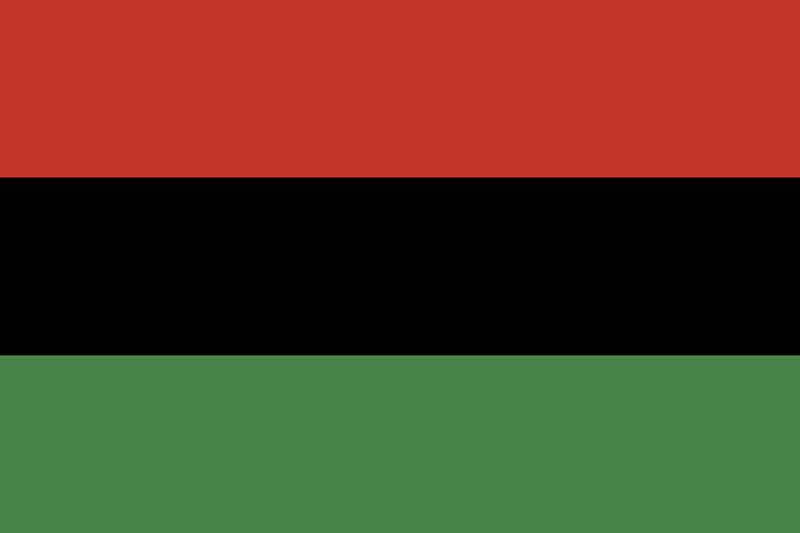 Yeshitela then explains the theory of African Internationalism:
Yeshitela then explains the theory of African Internationalism:
“[W]e can say without hesitation that the African nation does exist. It is one nation in need of consolidation, that is definable by objective and subjective characteristics. It is one nation, which like the European nation has features specific to its response to historical necessity. … that nations exist if only because it is an idea, which responds to Marx’s maxim that theory, when grasped by the masses becomes a material force.”
Thus the African nation is an activity “for-itself.” Not a commodity “in-itself.” Yeshitela’s bottom line:
“African Internationalism means black power to the African working class; it means elevation of the African working class to the position of ruling class.”
We (Africa) too have been naught, and we shall be all! Completing this act of creation of Africa for-itself is then the task of the African Socialist International.
The Original Sin.
Again, “We are not Marxists. We are historical materialists,” says Yeshitela, despite the fact that he holds the insights of Marx in great respect. (“Historical” distinguishes both Marx and Yeshitela from the schematic “dialectical” materialist.) Yeshitela then does some historical materialist analysis of Marx himself. Marx was also a European, Yeshitela notes, and Marx analyzed Kapital as a European, though Marx acknowledges:
“The discovery of gold and silver in America, the extirpation, enslavement and entombment in mines of the aboriginal population, the beginning of the conquest and looting of the East Indies, the turning of Africa into a warren for the commercial hunting of black skins, signalized the rosy dawn of the era of capitalist production. These idyllic proceedings are the chief momenta of primitive accumulation …”
In Marx’s analytical model, this fundamental point drops out of the picture. Marx brilliantly constructs a closed-system model of capitalist development, a model in which there are capitalists and workers, with workers fed into the system by the destruction of the feudal land-based system that tied slave-like serfs to their feudal lords. From there he was able to understand the self-destructive nature of capitalism and its creation of its own gravediggers, the working class. But capitalism is not a closed system. Marx’s revolutionary descendants take this worker/capitalist model as the material reality. So as capitalism grew, so the story grew, capitalism then sought empires in Africa, Asia and Latin America, in its lust for markets and resources.
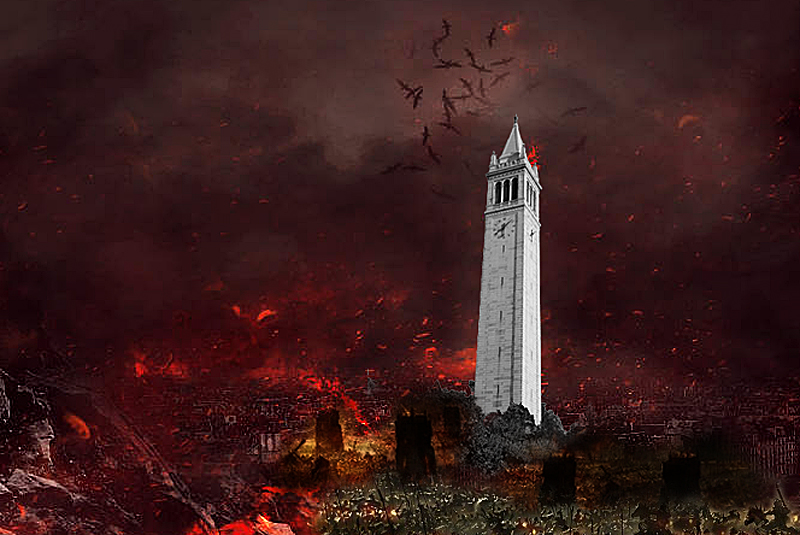 The implication is that capitalism somehow developed on its own, and then acquired empire (the very title of Lenin’s “Imperialism, the Highest Stage of Capitalism” echoes this). This is despite what Marx said earlier, that slavery, conquest and looting were absolutely necessary for the “rosy dawn of the era of capitalist production.” That necessity has never ceased to be the case, and the African is still the “other,” whose enslavement was and is the foundation of whatever existence the Europeans may enjoy. The only graves the European working class dug were its own in unending world wars.
The implication is that capitalism somehow developed on its own, and then acquired empire (the very title of Lenin’s “Imperialism, the Highest Stage of Capitalism” echoes this). This is despite what Marx said earlier, that slavery, conquest and looting were absolutely necessary for the “rosy dawn of the era of capitalist production.” That necessity has never ceased to be the case, and the African is still the “other,” whose enslavement was and is the foundation of whatever existence the Europeans may enjoy. The only graves the European working class dug were its own in unending world wars.
The orthodox, vulgar empiricist leftist might say, “Call it colonialist, call it imperialist, you’ve still got nation oppressing nation. What’s the damn difference?” Well, the damn difference is that such a view erases the significance of “how you got there,” i.e., it erases any differences between the subjectivity of the oppressed nation and the oppressor nation. Despite the fact that human subjectivity is the original starting point for Marx and in fact for any serious understanding of the world at all.
For the European (who, by the way, is still NOT making the revolution), you would make the revolution in the “mother country” and then clean up places like Africa afterwards.
From the perspective of the enslaved, the colonized, the African, colonialism was and is the direct and current mode of their oppression, and that dictates “what is to be done.” The fight to destroy colonialism is now, palpably a matter of life and death, and inescapable if there is to be any revolution at all. For both the European and the African. The African people are not going to be anybody’s afterthought.
Nation vs. People.
This understanding of nation is critical to the very way we understand Reparations. I mentioned towards the beginning how I mistook Yeshitela’s notion of “national suicide” …
“What it does mean is that whites would have to commit ‘national suicide,’ abandoning the interests of the European parasitic oppressor nation and uniting with the historical trajectory of the African nation to achieve ‘black power’ …”
… to mean “racial suicide.” In a similar way, colonial power rests on those of us in the white nation thinking of ourselves as a “people” (the second ideological pillar of the colonial system) propping up the first pillar (race). The American people this, the American people that, etc. The interlocked mindsets of people and race reduce us to our worst inclinations and rob us of the best within each of us.
One of the standard tenets of revolution and revolutionary movements — whether seeking revolution within a nation (as in Russia) or seeking liberation from an oppressor nation (Vietnam) — is to split the general population against its government, to divide the “people” and unleash forces that can join or support the revolution.
So the Bolsheviks agitated within an army (the “state”) weary from the slaughter in the trenches. Russian soldiers turned en masse against the war, shot their officers, left the trenches and marched to the rear. Tsarist generals cried, “Give me one good division! Give me one good battalion! I will put down this rabble!” But they had no good divisions, no good battalions, and the workers ruled the streets.
A key part of the political strategy of the Vietnamese — arrayed against the massed might of 550,000 American troops — was to support the U.S. anti-war movement, to make clear that the American people were not their enemy. Countless unacknowledged “cease fires” were arranged in the jungles by U.S. soldiers who only wanted to get home alive. Even as its bombers kept bombing, the mightiest army in the world was disintegrating into mutiny, drugs and demoralization.
As Che Guevara said, “At the risk of seeming ridiculous, let me say that the true revolutionary is guided by a great feeling of love.” Given the conflicted condition of white people as active oppressors and as oppressed, the situation requires both fierce hatred and what they used to call “tough love.” Very tough love.
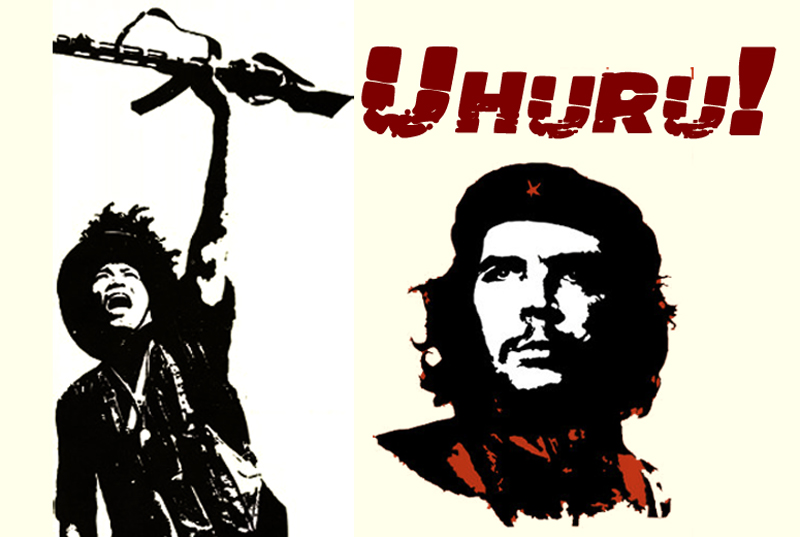 The African Nation in the belly of the beast.
The African Nation in the belly of the beast.
As shown above, the African nation is in the process of being created. It still has a long way to go
There have been historic struggles against colonialism in places like the Congo, Angola, Zimbabwe, South Africa, etc. But even the most explicitly Pan-African attempts to create a world-historic African unity have taken place within the framework of desperately poor nation states still ensnared in the European world economy. Their revolutionary aspirations were crushed by a combination of corruption and outright imperial force.
Yeshitela explains in his “2017 Political Report: Putting Revolution Back on the Agenda”:
“This has meant that the work to build the ASI has fallen squarely on Party resources within the U.S., notwithstanding the splendid work done by Party members in other parts of the world.”
Thus St. Petersburg Florida’s Uhuru House holds the international headquarters of the African Socialist International.
But the African community within the U.S. faces very different conditions than those faced elsewhere in the world. Can it lead the anti-colonial movement worldwide? Certainly that development will be uneven. Per Yeshitela:
“The only meaningful precedent we have to learn from is that provided by the Universal Negro Improvement Association and Africa Communities League (UNIA) of the early 20th century. … Some are bewildered by the fact that Garvey was able to build such a mammoth organization of millions of Africans on virtually every continent on earth in the early 1900s, before modern methods of communications like the Internet were available.”
Garvey took Booker T. Washington’s emphasis on “Africans doing for Africans” and …
“revolutionized it with the demand that Africans capture black State power to serve their interests. Africa for Africans! Garvey’s attraction was that he called on Africans to assert themselves in becoming masters of their own fate and creating their own economy––with steamship lines and recording companies and factories, and so on.”
In 1920 the UNIA claimed at least four million members, with 25,000 people from all over the world attending a rally at Madison Square Garden to hear Garvey speak.
The UNIA was besieged on all sides, by the U.S. government, establishment black leaders, and the Communist Party USA, which saw it as competition for the allegiance of the black masses. Garvey was ultimately jailed and deported. But the potential Garvey demonstrated still remains.
Yeshitela notes the “advantages” of being located in the belly of the beast.
“In the U.S. we are not only advantageously located because of the high degree of technological development, but also because of the numbers, density and organized history of resistance of the domestically colonized African population. Moreover, the experiences and work of the Uhuru Movement and African People’s Socialist Party that go back more than 50 years provide an advantage that cannot be overstated.
“Within the U.S. we have had the benefit of the many years of work and experience we have acquired, the development of economic institutions and a differently developed psychology among Africans that has long been open to the idea of black power and self-determination as compared to our brothers and sisters in Europe.
“As a community, Africans in the U.S. have been less intoxicated by the notion of the ‘American Dream’ than Africans elsewhere. In his retort to the ‘I Have a Dream’ speech of Dr. Martin Luther King Jr., Malcolm X showed that Africans here have been living a nightmare.”
What the African People’s Socialist Party adds to the movement that Garvey started is a revolutionary politic and a revolutionary organization.
“Radical Times! Radical Solutions!”
It’s not just some cool slogan for rallies and such.
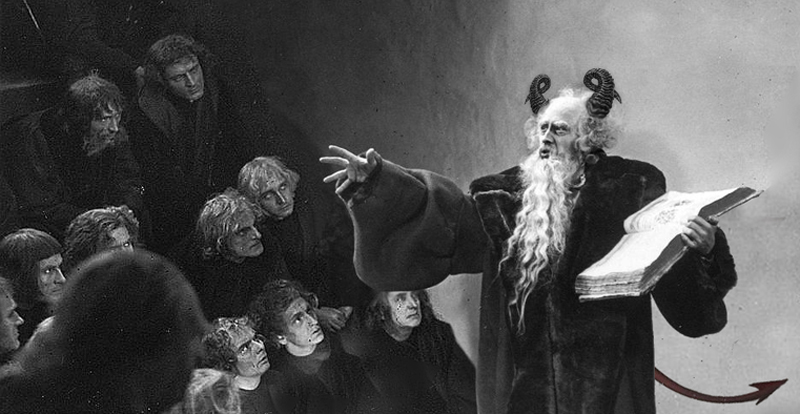 Indeed, the times are radical. Yeshitela outlines the cracks appearing within the European nation:
Indeed, the times are radical. Yeshitela outlines the cracks appearing within the European nation:
“The majority of the entire colonizer nation is in a state of economic, organizational and ideological disarray. This is one of the things made obvious by the presidential election of 2016.
“We know that there is a deep sense of foreboding within the colonizer nation. There is growing drug addiction and, for the first time in generations, if not ever, the death rate of white people is on the uptick. The electoral process has not succeeded in luring them into a sense of control over their future, which appears to be jeopardized by the new norm of economic decline, despite the U.S. government’s boast of full-employment.
“There is evidence that for the first time in recent history North Americans of the colonizer nation are confronted with the probability that their children will not be as well-off as they are according to a November 2016 report by the McKinsey Global Institute.
“The white sense of security that accompanied the belief that the U.S. had hegemony over the world’s affairs has been shattered by the defiance from forces as diverse as Venezuela, Iran, Democratic Republic of Korea, Russia, China, etc.
“The election also revealed that the majority of white people in the U.S. appear to be ideologically adrift. The bedrock of ideological coherence has been untethered from the foundation of previous assumptions of permanent affluence and unquestioned U.S. authority.”
The U.S. is fractured along class lines. White people have made a deal with the Devil, and the Devil’s bill has come due. As Yeshitela shows, however, there are opportunities for rendering the Devil’s contract null and void, even among some of the most backward people in the world.
U.S. leftists (petit-bourgeois to the core) might seize on this to call for a class approach, “black and white unite and fight!” against common oppression. But that formulation traditionally leads, to be specific, to calling for the leadership of the “aristocracy of labor,” i.e., the trade unions, that segment of the working class most thoroughly locked into its support of the white nation.
Therefore, in posing the class question, the questions to ask are, “Will the white working class support the leadership of the black working class?” and more specifically, “Can elements of the white working class be won to supporting Reparations for the black community?”
Those questions are what the radical campaigns of Jesse Nevel and Eritha Akilé Cainion (Now Anai) — running for St. Petersburg Mayor and District 6 City Council — posed to the city in the summer of 2017. In doing so, they re-defined St. Petersburg politics.
“We made the debate happen!”
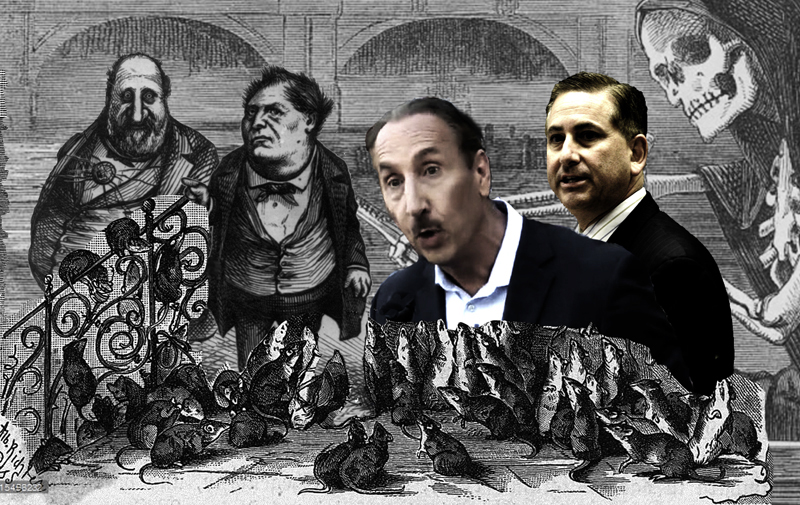
The two Ricks.
Kriseman (D), the current mayor, had wrapped up the support of the so-called progressive community. This included the Bernie Sanders operatives who are desperately seeking to take over the Democratic Party by hewing to the party line, the same ones who came out by the dozens for Hillary Clinton during last year’s presidential debacle.
Kriseman’s opponent in the non-partisan race was Rick Baker, the former Republican mayor (“Box-Cutter Baker” who had set the police to slashing the tents of the homeless camped out in a city park in 2007).
The corporate powers wanted the public contest to be a gentrification-fest between good old boys with million-dollar war-chests.
Jesse and Akilé spoiled the party. In the candidate debates, Jesse and Akilé — with their followers out in force to cheer them on — re-defined the terms of the campaign. The League of Women Voters once tried to shut them up (see League of Women Voters Debate). Unsuccessfully. Black community leaders began coming up to publicly honor and embrace Yeshitela. The debate organizers dared not try to shut it down. The other black candidates for Council and mayor were forced to speak in terms of Jesse and Akilé’s agenda, i.e., gentrification, economic development and police brutality. The headlines of the Tampa Bay Times screeched about “fisticuffs” and “St. Pete mayoral debate marred by Uhuru protest.” They lied that the Uhurus had prevented there being a debate. The campaign’s response, “We are what made a debate actually happen.” They had to be silenced.
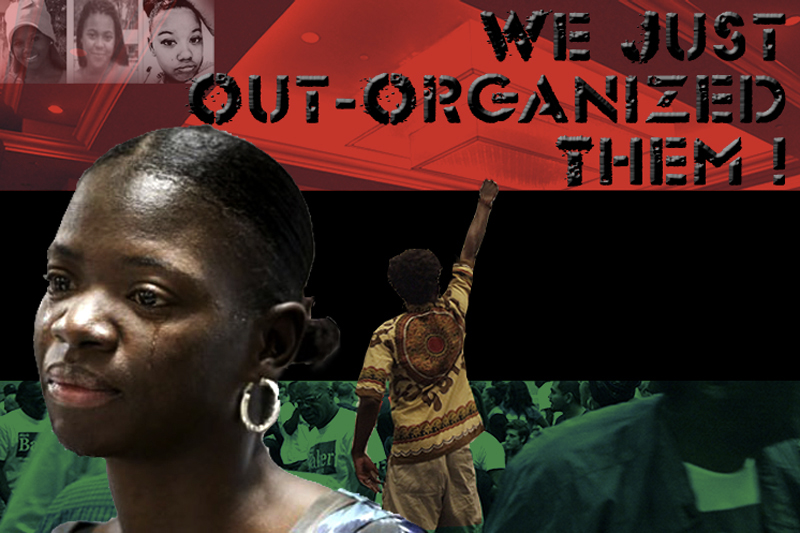 Jesse and Akilé were excluded from the only televised debate on July 25. When it came time to hand out tickets, the Tampa Bay Times and Bay 9 News announced that there were suddenly NO tickets, and the hundreds of people lined up outside the Palladium Theater were sent home. The sponsors decided that the audience would be “invitation-only,” to supporters of Rick Kriseman and Rick Baker. On the big night, the TV cameras could only pan over the nearly 700 empty seats in the hall, while Kriseman and Baker droned on.
Jesse and Akilé were excluded from the only televised debate on July 25. When it came time to hand out tickets, the Tampa Bay Times and Bay 9 News announced that there were suddenly NO tickets, and the hundreds of people lined up outside the Palladium Theater were sent home. The sponsors decided that the audience would be “invitation-only,” to supporters of Rick Kriseman and Rick Baker. On the big night, the TV cameras could only pan over the nearly 700 empty seats in the hall, while Kriseman and Baker droned on.
Fight for 15, bless their radical souls, canceled their own August debate. So did the one-time progressive Creative Loafing community newspaper. There would be no debates between then and the August 29 primary. The media began uniformly blacking Jesse and Akilé out of coverage. The gentrifiers won both primaries by large but suspicious margins, with Baker and Kriseman facing a runoff in November’s general election.
The last debate for the general election between Kriseman and Baker, according to the Tampa Bay Times, “took place in front of several dozen people.”
What they couldn’t silence was the Uhuru campaign’s door-to-door precinct operation, the nightly phone-banking, and the hundreds of yard signs that kept getting torn down by the Baker Boys and getting put back up by the community day-after-day.
The Radical Solution is Reparations.
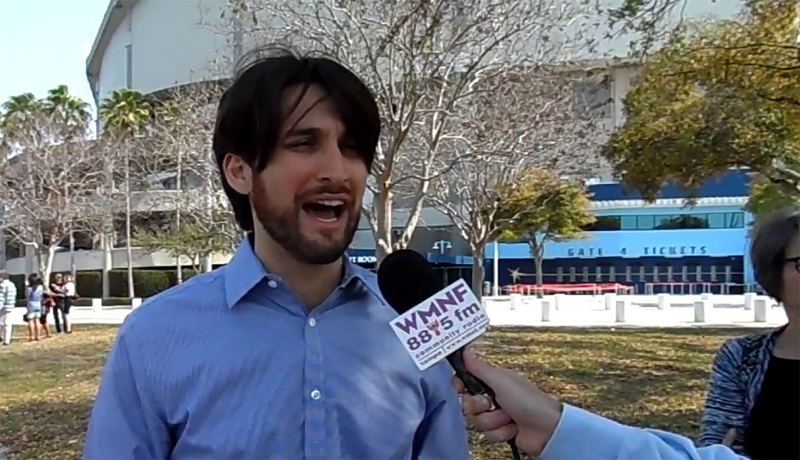
Jesse Nevel.
The campaign for Reparations continues. There is a new organization in town, Communities United for Reparations and Economic Development (CURED), a multi-racial organization, consolidating the precinct work both on the South Side and in the working-class white communities and fighting for the issues the campaign had raised. It is the people’s answer to the headline in the August 6 Tampa Bay Times, “$200 million later, why are St. Pete’s poor black neighborhoods worse off?”
Its goals include:
- Concrete development projects for Reparations at the expense of the Corporations and the System.
- Put a stop to gentrification.
- Black Community control of education.
- Black Community control of the police.
- End the rigged system that requires City Council reps to be “chosen” by a city-wide vote.
- Tear down the “Dome,” built on the bulldozed homes of the South Side.
A founding convention will be held in February.
Beyond St. Petersburg.
The Jesse and Akilé campaign will become a model for the country. St. Pete’s South Side, in one form or another, exists in every city in the nation.

Akile Anai.
At a South Side Town Hall meeting last summer, Akilé was asked whether their campaign could serve as a model for every American city where devastation of the black community is the order of the day. She explained:
“We have South Sides all around the country, where there are the same economic foundations, the same social system as St. Pete. You will find Africans in poverty everywhere, because this entire world economy rests on the enslavement of the African people. So yes, St. Pete is the model for candidates running from poor, working class black communities on a platform of Reparations. This majority-white city is going to lead this country and the entire world into the future. This is why we say our campaigns are so historic. This time is the best time, because in too few years, under an administration of gentrification, of police violence, of homelessness, of poverty, of progress at the expense of the black community there won’t be a black community in the city of St. Pete, there won’t be a black community in St. Louis, there won’t be a black community anywhere in this country.
“Right now we’re building a people’s movement. This ensures that whatever happens on Election Day, the people will win. Not just getting elected, but transforming this whole process. The people have been awakened by this campaign. City government can’t operate like it used to. With all the money they have, all the power they have, they can’t defeat us. They don’t have the people that we do. They have to pay their volunteers because they don’t believe in what they’re saying. We don’t have to. Our passion comes from conviction, from the truth, and the desire for revolution around the world.
“The battle of St. Pete back in 1996 was the dress rehearsal. This is the real deal. The strategy from the beginning has been to build a people’s movement, to bring the people to power. That’s why we are confident. That’s how the people are going to win.”
— Jeff Roby
October 22, 2017

